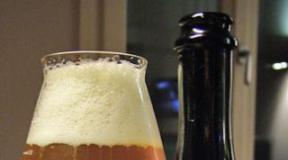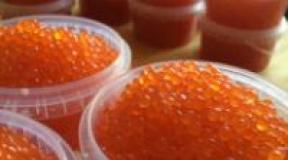Alcohol and cholesterol: positive and negative effects. Does alcohol affect blood cholesterol?
There is an opinion that alcoholic beverages are useful for high blood cholesterol. Moreover, there is a version that in people who regularly drink alcohol, the blood vessels are in good condition.
Therefore, with hypercholesterolemia, it is recommended to drink wine, beer or cognac in moderation every day. However, there are other versions claiming that drinking alcohol in any amount has a negative effect on the body.
But what is the real effect of alcohol on blood cholesterol levels? After reading the article written below, every person suffering from hypercholesterolemia can find the answer to the question based on medical evidence.
Effects of alcohol on cholesterol levels
Cholesterol is a fat-like white substance with a viscous consistency. It belongs to polycyclic alcohols, sterols belonging to the steroid group.
There is a misconception that bad cholesterol accumulates in the body when high-calorie foods are abused. But in reality, only 1/5 of the substance enters with food, and most of it is produced by the liver and other organs.
There is good (HDL) and bad (LDL) cholesterol. If the level of the latter is significantly exceeded, then it begins to accumulate on the walls of blood vessels. This is how atherosclerotic plaques are formed.
 All this contributes to the development of atherosclerosis, which, if untreated, leads to hypertension, organ failure, heart attack and stroke. In order to prevent the appearance of undesirable consequences, diet therapy and drug treatment are recommended for people with high levels of LDL in the blood.
All this contributes to the development of atherosclerosis, which, if untreated, leads to hypertension, organ failure, heart attack and stroke. In order to prevent the appearance of undesirable consequences, diet therapy and drug treatment are recommended for people with high levels of LDL in the blood.
But some believe that alcohol will be an effective therapeutic agent for hypercholesterolemia. But how compatible is cholesterol and alcohol?
When a person has an overestimated content of low density lipoproteins in the blood, doctors do not forbid him to drink alcoholic beverages, but in small quantities. After all, a number of studies have proven that with moderate alcohol consumption, cholestrol levels can increase slightly - by 4 mg / dl.
Numerous studies have confirmed that alcohol can be beneficial for people who drink small amounts of alcohol. The therapeutic effect of alcohol is as follows:
- Prevention of the appearance of atherosclerosis and cholesterol plaques.
- Strengthening the synthesis of HDL, as a result of which the level of the latter rises to 4 mg / dL.
- Faster and more efficient blood cleansing of harmful cholesterol;
- Prevention of the development of stroke, myocardial pathologies and other heart diseases by 25-40%.
- Prevention of obesity in women.
However, numerous analyzes do not confirm that alcohol has a direct effect on cholesterol levels. Therefore, most doctors are of the opinion that alcohol cannot cleanse the blood from LDL, much less dissolve and remove atherosclerotic plaques from the body. Therefore, the use of alcohol-containing beverages for hypercholesterolemia should be discussed with the attending physician.
If we talk about the negative relationship between cholesterol and alcohol, then the latter does the body more harm than good. So, people with cardiovascular disease often have to take statins, vitamins, antidiabetic drugs and sleeping pills. The combination of these drugs with alcoholic beverages leads to a decrease in their therapeutic effectiveness and the development of a number of side reactions - drowsiness, disruption of the liver, digestive tract organs, kidneys, general malaise.
Alcohol is also harmful to obese people with high triglyceride levels. If such a patient regularly drinks alcohol, then the level of fat in his blood will rise even more.
Other negative consequences that occur after taking large quantities of alcoholic beverages:
- Inhibition of HDL synthesis, which makes it difficult to cleanse the blood of harmful cholesterol;
- Increased risk of atherosclerosis and hypercholesterolemia.
- The emergence of a predisposition to oncology (cancer of the rectum, breast).
- Aggravation of the course of diseases of the digestive system.
- Destruction of the blood lines.
- Dystrophy of myocardial vessels, increased formation of blood clots, which leads to a heart attack.
- Deterioration of liver function.
- The emergence of mental disorders.
What alcohol is allowed for hypercholesterolemia
Sugar level
Alcoholic drinks are made from different types of raw materials. Moreover, the cooking method is also different, which affects its strength. Therefore, the permitted dosage of alcohol for hypercholesterolemia may vary depending on the type of drink.
When determining a universal dose of alcohol, doctors take into account the gender of the patient and the amount of ethanol in the product. Thus, men can consume up to 2 doses of alcohol per day, while women are allowed to drink only one portion.
Medicine recognizes that dry red wine is the best drink for high cholesterol. It contains many antioxidants that activate blood circulation, strengthen blood vessels and reduce the likelihood of blood clots. The recommended dose of a drink made from grape berries is up to 150 ml per day.
Are vodka and cholesterol compatible? The main components of the drink are grain alcohol and water. It can also contain both natural (herbs) and artificial additional ingredients (sugar, stabilizers, thickeners, flavors).
Vodka, used in small doses, is even good for the body. The drink improves blood circulation, dilates blood vessels, eliminates signs of atherosclerosis. The recommended amount per day is up to 50 ml.
The combination of beer and cholesterol also in a minimal amount will not harm the body. But it is worth remembering that the intoxicated drink contains a lot of high-calorie malt, which leads to the accumulation of fat and narrowing of the vascular lumen. Drinking beer is especially undesirable in type 2 diabetes.
Can a non-alcoholic beer drink increase blood levels? With its moderate consumption, LDL levels decrease and the work of the cardiovascular system improves. But you should not abuse such a product, as it often contains harmful components.
Regarding cognac and whiskey, if you drink them in moderation, they will also be useful for hypercholesterolemia. These drinks contain antioxidants, eplagic acid, vitamins, tannins and tannins that strengthen blood vessels, improve blood flow and stimulate the heart.
How much cognac or whiskey can you drink per day? Since these drinks even exceed vodka in strength, the recommended dose per day is no more than 30 ml.
In order for moderate consumption of high-quality alcohol with hypercholesterolemia to bring the maximum therapeutic effect, doctors recommend not to forget about proper nutrition. The bottom line is the rejection of fatty foods of animal origin.
With high cholesterol, vegetables and fruits should be included in the diet, especially beet, pumpkin, carrot juices. You should also regularly eat nuts, including almonds, fish, and do not forget about fermented milk products. Cooking recipes for hypercholesterolemia are selected in accordance with Pevzner's diet number 10.
Many people suffer from the problem of high blood cholesterol, but what about alcohol in such a situation, do we really have to completely give up? Now we will try to tell you about how alcohol affects blood cholesterol levels. Consider all the common opinions of doctors, find out what cholesterol is and why it is needed. And you will already draw conclusions yourself, whether it is worth drinking alcohol or not.
Why do we need cholesterol and how dangerous is it?
And so, cholesterol in our blood is a white substance, by its consistency it is greasy and viscous. Cholesterol itself is not dangerous for humans, on the contrary, it plays an important role in the development of the body. It can act as an additional source of calories, and in extreme conditions, when a person is without food for a long time, cholesterol stores can act as an additional source of energy. Under normal conditions, cholesterol acts as a building block for glucides, hormones, and fats. It is an irreplaceable part that is in every cell of our body. 
Many people think that cholesterol enters the body only with food, but in fact it is not. If not enough of this wax-like substance comes from outside, the body itself begins to produce it, because its lack is no less dangerous than an excess. The liver converts most of the fats we eat into cholesterol, which, entering the bloodstream, is evenly distributed among all cells.
So why is he so dangerous that everyone is talking about him. The danger is not cholesterol itself, but its high content. If a person leads a sedentary lifestyle and at the same time eats a lot of high-calorie food, the level of cholesterol rises and it begins to be deposited on the walls of our vessels, thereby making it difficult for the blood to move. At the same time, in addition to deposits, it also glues erythrocytes together, which interferes with the full flow of oxygen and other nutrients carried by blood to our heart.  As a result, tissues on the myocardium gradually begin to die off, which can lead to myocardial infarction.
As a result, tissues on the myocardium gradually begin to die off, which can lead to myocardial infarction.
When deposited on the walls of blood vessels, they become fragile and less elastic, the channel through which blood flows is significantly narrowed, the load on the heart increases, and blood circulation slows down. Which, in turn, provokes the formation of even more clots, which can lead to blockage of blood vessels and death of a person.
How alcohol affects blood cholesterol levels
 The thing is that for our body, alcohol does much more harm than good. Our body produces approximately 10-15 ml of natural ethanol every day. And this is quite enough for us. As soon as we drink a little alcohol, our stomach begins to produce juices, this leads to a feeling of severe hunger. That is why many drinkers pour themselves a little before eating to increase their appetite. But there is nothing good in this, when drinking more than 60 grams of vodka, the liver is damaged, over time it will of course recover, but if you drink more and more often, then the consequences may not be reversible.
The thing is that for our body, alcohol does much more harm than good. Our body produces approximately 10-15 ml of natural ethanol every day. And this is quite enough for us. As soon as we drink a little alcohol, our stomach begins to produce juices, this leads to a feeling of severe hunger. That is why many drinkers pour themselves a little before eating to increase their appetite. But there is nothing good in this, when drinking more than 60 grams of vodka, the liver is damaged, over time it will of course recover, but if you drink more and more often, then the consequences may not be reversible.
But in limited quantities, alcohol consumption is still acceptable for people with high cholesterol levels. As you know, alcohol thins the blood and dilates blood vessels, as a result of which they are cleaned to some extent, and the clots gradually dissolve. But you need to understand, we treat one thing - we cripple the other.
When it comes to moderate doses, we mean 1 serving for women and 2 for men. One serving means:
- 300 ml beer
- 150 ml of wine
- 60 ml vodka
For patients who drink medications, alcohol is categorically contraindicated, since it eludes the risk of side effects of almost any drug.
Summing up, we can say that you can drink a little, but only if you are sure that it will not develop into a long binge. Alcohol dilates blood vessels and thinns the blood, this is a fact, and with a high cholesterol level, this can be useful to us, but it is better to lead an active lifestyle and play sports, there will be much more benefit from this.
Found a bug? Highlight it and press Shift + Enter or
Cholesterol plaques on blood vessels are a provoking factor for the development of many dangerous conditions and diseases. There is a widespread belief that alcohol and cholesterol interact, as a result of which the specific gravity of cholesterol deposits on the vessels decreases.
Cholesterol is an organic alcoholic compound found in the cell membranes of all living things except plants. Most of the cholesterol is produced in the body itself, and by no means comes from food. For the production of this substance, organs such as the liver, intestines, gonads, kidneys and adrenal glands are responsible.

Thanks to cholesterol, cell membranes become stable over a wide temperature range. The substance allows the body to produce vitamin D, steroids (including cortisol, testosterone, and estrogens), and bile acids. Cholesterol is also a source of calories if the body, for any reason, does not receive the right amount of food.
The danger to human health is not cholesterol in itself, but its excessive amount. By settling on the vascular walls, cholesterol forms plaques, resulting in a decrease in the clearance required for blood flow. Due to the reduction of the lumen and the violation of the normal elasticity of blood vessels, blood flow worsens, which leads to a variety of dangerous health conditions.
There are two types of cholesterol. They differ in the degree of density of the lipoprotein present in their composition. High-density lipoproteins do not remain on the vascular walls and belong to the so-called "good" cholesterol. "Bad" cholesterol includes low-density lipoproteins responsible for damage to the vascular walls.

High blood cholesterol levels lead to the following pathological conditions and diseases:
- , heart attack. As a result of a decrease in the lumen in the coronary arteries, the patient experiences pain in the retrosternal region. Pain syndrome occurs periodically - in the form of angina attacks. The final phase of the dangerous state is the complete overlap of the lumen of the artery. Clogging leads to.
- ... The mechanism of development of the pathology is exactly the same as described above, but the blood flow is disturbed in the vessels of the brain. The patient suffers from headaches, vision and memory deteriorate. The brain tissue does not receive the required amount of oxygen along with the blood. The result of circulatory disorders is stroke - a life-threatening condition.
- Insufficiency of organs. Due to changes in the bloodstream, the normal nutrition of human organs is disrupted, and their functionality is fading away.
- ... It is a disease associated with persistent high blood pressure. One of the possible causes of the disease is high blood cholesterol levels.

Interaction of alcohol and cholesterol
Alcohol has the ability to dissolve cholesterol. Due to the ability of alcohol to dilate blood vessels, the blood circulation rate increases for a while (3-4 hours). During this time, the walls of the vessels are cleared of cholesterol deposits. Thus, with high cholesterol, the concentration of this substance in the blood decreases. However, it should not be forgotten that the effect is achieved only with moderate doses of alcohol. Otherwise, alcohol, on the contrary, increases the level of triglycerides (a component of cholesterol) in the blood.
Note! The effect of alcohol on cholesterol depends on the initial level of this substance in the blood.
Increased performance
With high cholesterol levels, alcohol stimulates the production of "good" cholesterol in the blood. At the same time, the decrease in the amount of "bad" (low-density) cholesterol is not so pronounced, but the ratio of substances becomes more favorable.
Normal indicators
If your cholesterol levels are within the normal range, a reasonable amount of alcohol creates the conditions for the production of good high-density cholesterol. Also, the level of triglycerides in the blood increases.

Influence depending on the type of alcoholic beverages
Whiskey
This alcoholic drink is made from grain, in the process of aging in oak tanks. Typically, the strength of whiskey ranges between 40 and 50 degrees. Small doses of whiskey are beneficial for people with high blood cholesterol levels. Whiskey contains ellagic acid, which is a powerful antioxidant. The acid protects the cardiovascular system and slows down the aging process of the skin. Due to its healing properties, this element is called "free radical cleaner".
Cognac
For the production of cognac, white grape wine is used, aged in oak barrels. The strength of cognac starts from 40 degrees.
Cognac contains ethyl esters, tannin, tannins and organic acids. Due to this composition, cognac has an anti-inflammatory effect, increases the body's ability to assimilate vitamin C. Like whiskey, cognac has antioxidant characteristics.
Wine
There are many varieties of wine: from dry to fortified, from white to red. The strength of the wine varies from 9 to 27 degrees.
The usefulness of wine is determined by the presence of antioxidants and vitamins in it. The largest proportion of beneficial elements is found in red wine. This wine is especially effective in reducing blood cholesterol levels.

Vodka
There are only two ingredients in vodka - water and alcohol. The reference strength of vodka is 40 degrees. In addition to the basic components, sugar, thickeners, flavoring agents and stabilizers can be added to vodka. In addition to pure vodka, tinctures are produced containing all kinds of herbal ingredients.
The effect of vodka on cholesterol levels is determined not only by alcohol, but also by additional elements when it comes to herbal bitters. In reasonable amounts, vodka can help lower cholesterol levels.
Champagne
In champagne, the concentration of alcohol is minimal. In addition, domestic drinks cannot be called real champagne, this is just one of the varieties of sparkling white wine. Compared to other types of alcohol, champagne is the least beneficial for lowering blood cholesterol levels. You should also take into account the mechanism of action of champagne: it especially strongly contributes to the expansion, and then a sharp narrowing of blood vessels, which negatively affects a person's well-being.
Beer
Numerous studies point to a link between drinking small amounts of beer and lowering high-density cholesterol levels. According to the research results, if you consume 500 grams of beer per day, the risk of heart and vascular diseases is reduced by 32%. Beer promotes the production of dense cholesterol.

Drinking too much beer will do far more harm than good. In particular, beer suppresses the production of testosterone, which leads to a decrease in libido and the development of hormonal pathologies. In addition, a decrease in testosterone levels leads to the dominance of another type of hormone - estrogen. These elements are associated with the production of "bad" cholesterol.
The consequences of alcohol abuse
If the only organs in the body were the stomach and esophagus, then alcohol would do more good than harm. Excess fatty foods would be neutralized by alcoholic beverages, cholesterol would dissolve, and waste products would be removed from the body. However, human physiology is more complex.
Alcohol actually takes up dissolved fat, but it also goes through a breakdown process in the liver. This body neutralizes ethanol. However, toxic substances remain in the liver, which adversely affects its functionality: over time, healthy cells are destroyed and replaced by connective tissue. Diseases such as chronic hepatitis, sclerosis, or cirrhosis of the liver develop.
The kidneys are also adversely affected by alcohol. To eliminate the poisons separated by the processing of ethanol, urinary excretion is increased. As a result, a load is created on the kidneys, since they have to act in conditions of a lack of fluid.
The body's response to the ingress of alcohol into the oral cavity is the secretion of gastric juice. As a result, there is a feeling of hunger. The juice contains stomach acid, which lacks pepsin - a special enzyme needed to digest food. With prolonged alcohol abuse, this imbalance leads to a variety of stomach diseases, including catarrh, gastritis, or ulcers.

The gut also suffers from excessive alcohol consumption. The main symptoms of bowel dysfunction are inflammation that leads to enterocolitis (a regular bowel disorder). Also, people suffering from alcoholism are prone to hemorrhoids. An improperly functioning gastrointestinal tract becomes the reason for the lack of the necessary trace elements and vitamins in the body that come with food. As a result, additional diseases develop that are not directly related to alcohol consumption.
Algol negatively affects the nervous system and brain cells. With the abuse of alcoholic beverages, cells die and a gradual degradation of the psyche occurs.
The effect of alcohol on the vascular system is ambiguous. At first, after taking alcohol, vasodilation occurs. However, after 3-4 hours, on the contrary, there is a sharp narrowing of the vascular lumen. The result of this reaction is wear and tear of the muscular vascular system, the walls become thinner, their integrity is easily violated.

The greatest impact of alcohol dependence affects the large arteries. They are responsible for the flow of blood to large organs, including the heart and brain. Insufficient blood supply causes the development of many diseases.
Safe dosages
For a positive effect on blood cholesterol levels, strictly limited doses of alcohol are allowed. Wine can be drunk no more than 150 grams per day, beer - 500 grams, liqueur - 50 grams, vodka - 30 grams. A limited intake of alcohol can bring the level of good HDL cholesterol to 3.8-4.2 milligrams per deciliter.
Lowering cholesterol without alcohol
It is possible to lower the amount of cholesterol in the body without the help of alcoholic beverages. To do this, you need to give up eating too fatty foods, go in for sports and not have bad habits.
The main way to fight cholesterol without alcohol is healthy eating. You will have to completely exclude from the diet such products as butter (replace with vegetable oil), lard, by-products. The consumption of fatty meat and eggs should be reduced. There should be enough nuts, peanut butter, legumes, and avocados on the menu. fruits, primarily citrus fruits.
So, alcohol really helps to normalize blood cholesterol. The most important thing is not to go beyond the recommended dosages.
It is believed that drinking alcoholic beverages has a positive effect on blood cholesterol levels. You can hear that alcoholics have the healthiest blood vessels when compared to those who drink in moderation or not. At the same time, they add that they have problems with other organs, and they have everything in order with the blood vessels. You can also find a lot of advice on the need for daily consumption of a small amount of wine, cognac or beer. According to such statements, this is a very good way to rid your body of blood cholesterol. However, there are also statements that alcoholic beverages in any quantity and quality, be it beer, wine or vodka, harm the human body.
Which of these opinions to believe? To understand which one is correct, you need to understand what alcohol and cholesterol are, how they interact with each other, and what harms the human body more. Manufacturers of wines, beer, vodka and other alcoholic beverages allocate a lot of money to advertise their products. The huge alcohol industry pays for a lot of research aimed at showing the public the usefulness of its products. Various publications in numerous newspapers, magazines, Internet resources, books prove the benefits of regularly using one or another alcoholic product. They are aimed at increasing sales and making big profits. In this case, human health is of no interest to anyone except the person himself. Only by understanding all the processes occurring in the body under the influence of alcoholic beverages, as well as the process of formation of cholesterol, its harm to internal organs and systems, can we decide on this issue.
What is cholesterol?
 Cholesterol in the blood is a white, greasy, wax-like and viscous substance. This substance belongs to the group of polycyclic alcohols, sterols, which are classified as steroids. Cholesterol does not have any special dangerous properties by itself. Its harmlessness and necessity are noted. In extreme cases, it is cholesterol that acts as an additional store of calories, which in emergency situations can prolong and save a person's life. If this substance is in the body at a normal level, then it is used for the production of hormones, glucides and fats. But the most interesting thing is that it is cholesterol that is an integral part of every cell of the entire human body.
Cholesterol in the blood is a white, greasy, wax-like and viscous substance. This substance belongs to the group of polycyclic alcohols, sterols, which are classified as steroids. Cholesterol does not have any special dangerous properties by itself. Its harmlessness and necessity are noted. In extreme cases, it is cholesterol that acts as an additional store of calories, which in emergency situations can prolong and save a person's life. If this substance is in the body at a normal level, then it is used for the production of hormones, glucides and fats. But the most interesting thing is that it is cholesterol that is an integral part of every cell of the entire human body.
It is mistakenly believed that cholesterol enters the body only with high-calorie food consumed. This is not true. The body itself produces the substance in a larger volume than it comes with the consumed food. If it is not enough from the outside, the body begins to pump up the volumes of its own cholesterol, because its lack will lead to a serious deterioration in health. The overwhelming amount of fats entering the body is broken down in the liver into cholesterol, which is secreted as bile, enters the bloodstream and is evenly distributed between living cells. But for those whose food is overloaded with high-calorie foods and who lead a sedentary lifestyle, high cholesterol is poorly burned. As a result of the fact that the caloric content of food is increased, the blood flow is oversaturated with wax particles, which randomly accumulate in various places, forming barriers and preventing blood flow.
 With high cholesterol, its destructive effect does not end there. It combines red blood cells with each other, which leads to their accumulation. Because of this, they move along the blood lines not separately, but in whole groups, creating congestion, thereby interfering with the full flow of oxygen and nutrients into the main human motor - the heart. The result of this process is the death of tissues on the myocardium, scarring at the site of the dead tissues and myocardial infarction. But besides this, this substance covers the arterial walls, has a destructive effect on them, contributing to the appearance of deposits and their progression. For this reason, the arterial walls lose their elasticity and elasticity, become very fragile, which makes it difficult for the pulsation of the blood flow and makes the blood flow channel itself very narrow. Blood circulation becomes slow, causing blood clots to form, which further impede blood flow and can stop it completely. The result is death.
With high cholesterol, its destructive effect does not end there. It combines red blood cells with each other, which leads to their accumulation. Because of this, they move along the blood lines not separately, but in whole groups, creating congestion, thereby interfering with the full flow of oxygen and nutrients into the main human motor - the heart. The result of this process is the death of tissues on the myocardium, scarring at the site of the dead tissues and myocardial infarction. But besides this, this substance covers the arterial walls, has a destructive effect on them, contributing to the appearance of deposits and their progression. For this reason, the arterial walls lose their elasticity and elasticity, become very fragile, which makes it difficult for the pulsation of the blood flow and makes the blood flow channel itself very narrow. Blood circulation becomes slow, causing blood clots to form, which further impede blood flow and can stop it completely. The result is death.
The destructive effect of life-saving alcohol
 Alcohol is harmful, not less, but more. To be convinced of this, it is necessary to trace the entire path that it takes from the moment it enters the body. As soon as the drops of alcohol are in the mouth, the stomach immediately starts secreting juice, which leads to a strong feeling of hunger. For this reason, advocates of alcoholic beverages as a medicinal product claim that they improve appetite. But there is little joy in this, because the juice in the stomach is secreted in large quantities and with a high content of hydrochloric acid and the absence of the enzyme pepsin, which is necessary for the process of digestion of the incoming food. There is the appearance and development of stomach catarrh and gastritis, the symptoms of which are well known for severe abdominal pain, nausea and vomiting.
Alcohol is harmful, not less, but more. To be convinced of this, it is necessary to trace the entire path that it takes from the moment it enters the body. As soon as the drops of alcohol are in the mouth, the stomach immediately starts secreting juice, which leads to a strong feeling of hunger. For this reason, advocates of alcoholic beverages as a medicinal product claim that they improve appetite. But there is little joy in this, because the juice in the stomach is secreted in large quantities and with a high content of hydrochloric acid and the absence of the enzyme pepsin, which is necessary for the process of digestion of the incoming food. There is the appearance and development of stomach catarrh and gastritis, the symptoms of which are well known for severe abdominal pain, nausea and vomiting.
When alcohol enters the stomach alone, enormous harm is done. Further in the intestine, it provokes inflammatory processes that lead to the occurrence of enterocolitis. With this disease, there is a disorder of the stool. For a complete picture of the diseases of the digestive system, add stomach ulcers and hemorrhoids. But this is the tip of the iceberg. As soon as the gastrointestinal tract experiences pathological processes, the rest of the body experiences difficulties with incoming nutrients, vitamins, macro- and microelements. And this provokes the appearance and development of many pathologies.
The alcohol then goes to the liver. It becomes a powerful defensive structure before the substance enters the bloodstream and affects all cells and tissues of the body. The liver is the main organ for neutralizing toxic substances that enter the body. But alcohol is a strong adversary, having entered the body in small quantities, from 50 to 70 g, it already damages the liver. Violations are temporary, but if the process is regular, then they turn from temporary to permanent. Further alcohol consumption leads to degeneration of liver tissue, degeneration, accompanied by the death of organ cells. The development of connective tissue in their place leads to diseases such as chronic hepatitis, gradually leading to liver sclerosis.
The effect of alcohol on cholesterol
 Where did the myth about healthy blood vessels come from then? The fact is that alcohol affects the elimination of white matter from the blood. But as soon as it enters the bloodstream, it begins destructive activity with the walls of blood vessels, provoking the appearance and development of atherosclerosis. However, while drinking alcoholic beverages, they are eaten with fatty foods, which complements the effect of destroying the blood vessels.
Where did the myth about healthy blood vessels come from then? The fact is that alcohol affects the elimination of white matter from the blood. But as soon as it enters the bloodstream, it begins destructive activity with the walls of blood vessels, provoking the appearance and development of atherosclerosis. However, while drinking alcoholic beverages, they are eaten with fatty foods, which complements the effect of destroying the blood vessels.
The destruction does not end there. The greatest danger alcohol carries for the coronary vessels of the heart muscle, which have signs of developing atherosclerosis. As soon as ethanol enters the heart tissue through the blood, it enhances the developing degeneration of these vessels, stimulating thrombus formation, vascular occlusion and the occurrence of myocardial infarction. But one must understand that these are only particulars. As soon as alcohol enters the blood after the liver, it rushes to all internal organs, to all systems, cells and tissues, exerting a destructive effect on them.
How is cholesterol removed from the body with the help of alcohol?
You can hear the expression that. Dilating vessels allow for increased blood flow, whereby some of the deposits on the vessel walls disappear. After the vessels return to their previous state, the blood flow encounters fewer obstacles in its path, it improves, which to some extent has a positive effect on the health of the body.
It is noted that ethanol that has entered the blood has an effect on the formation of blood clots, facilitating their dissolution. Those who regularly drink alcohol on an empty stomach have increased blood clotting. These are small quantities.
Should you get rid of cholesterol with alcohol?
 Summarize. The producers of alcoholic beverages convince the consumer that alcohol in small quantities is good and healthy. But if you look closely at everything that happens through the fault of alcohol, then the positive effect of its intake is questionable. Sometimes the fact is cited that on the Mediterranean coast and in the Caucasus people regularly consume wine and live a very long time, feeling healthy until old age. Here you can see a clear deceit, because the inhabitants of these regions are greatly influenced by the climate, air and food consumed. For example, the influence of seafood, which is traditionally included in the menu of the inhabitants of the coast, is very beneficial for the health of the body. The inhabitants of the plains have nothing to oppose to such a diet or the mountain air of the Caucasus.
Summarize. The producers of alcoholic beverages convince the consumer that alcohol in small quantities is good and healthy. But if you look closely at everything that happens through the fault of alcohol, then the positive effect of its intake is questionable. Sometimes the fact is cited that on the Mediterranean coast and in the Caucasus people regularly consume wine and live a very long time, feeling healthy until old age. Here you can see a clear deceit, because the inhabitants of these regions are greatly influenced by the climate, air and food consumed. For example, the influence of seafood, which is traditionally included in the menu of the inhabitants of the coast, is very beneficial for the health of the body. The inhabitants of the plains have nothing to oppose to such a diet or the mountain air of the Caucasus.
Therefore, alcohol prevention in small, and even more so in large doses in any of its qualities is harmful to humans. As for vasodilation, physical activity helps a lot. Eating a healthy diet with moderate calories helps fight cholesterol.
The combination of regular physical activity and proper nutrition transforms a person.
He feels better, enters a state in which his thoughts are clear, his consciousness is bright. A new worldview appears, a good mood, despite the bad weather. No stimulant or alcohol has this effect.
Thank you for your feedback.
Comments (1)
Megan92 () 2 weeks ago
Did anyone manage to save your husband from alcoholism? Mine drinks without drying out, I don't know what to do ((I thought about getting a divorce, but I don’t want to leave the child without a father, and I’m sorry for my husband, so he’s a great person when he doesn’t drink
Daria () 2 weeks ago
I have already tried so many things and only after reading this article, I managed to wean my husband from alcohol, now he does not drink at all, even on holidays.
Megan92 () 13 days ago
Daria () 12 days ago
Megan92, so I wrote in my first comment) I will duplicate just in case - link to article.
Sonya 10 days ago
Isn't this a divorce? Why are they selling on the Internet?
Yulek26 (Tver) 10 days ago
Sonya, what country do you live in? They sell on the Internet, because shops and pharmacies set their marginal markup. In addition, payment only after receipt, that is, first looked, checked and only then paid. And now everything is sold on the Internet - from clothes to TVs and furniture.
Editorial response 10 days ago
Sonia, hello. This drug for the treatment of alcohol dependence is really not sold through the pharmacy chain and retail stores in order to avoid overpricing. To date, you can order only on official website... Be healthy!
Sonya 10 days ago
I apologize, I did not notice the information about cash on delivery at first. Then everything is fine for sure if the payment is on receipt.
Margo (Ulyanovsk) 8 days ago
Has anyone tried folk methods to get rid of alcoholism? My father drinks, I can't influence him in any way ((
People are often confronted with the opinion that alcohol has a positive effect on blood cholesterol levels. Some even argue that alcoholics have stronger blood vessels than non-drinkers. But not everyone remembers the state of other organs after taking alcoholic beverages. After all, alcohol is a provocateur of many dangerous diseases that sometimes lead to death.
Many people believe in advertisements, advice that promote the daily consumption of beer, wine to improve health. As a result, they experiment on themselves, without even consulting a doctor, without going through a full examination, which sometimes ends in failure. In order to understand what connection alcohol and cholesterol have, whether alcoholic beverages have a positive effect on the state of blood vessels, you need to understand this issue in more detail.
What does high cholesterol lead to?
If the level of cholesterol in the blood is high, then this leads to the fact that it begins to settle on the inner walls of blood vessels. As a result, plaques are formed, which are usually called "cholesterol" due to their origin. Such a process is the beginning of the development of atherosclerosis, which, without timely and adequate treatment, can lead to serious consequences.
Cholesterol plaques reduce the lumen in blood vessels. As a result, their permeability deteriorates, and this leads to impaired blood circulation in tissues and organs. Plaques tend to rapidly increase in size, which threatens to completely block the vessel. The body cannot cope with the problem on its own, therefore, medical intervention is indispensable.
Elevated cholesterol levels, called hypercholesterolemia, cause the following diseases:
- Ischemic heart disease, heart attack. The plaque narrows the lumen in the coronary arteries. A person periodically begins to experience pain in the retrosternal region, which are paroxysmal in nature (angina pectoris). If you do not seek medical help in time, the lumen in the artery will completely close, and this will lead to myocardial infarction.
- Stroke. In this case, the plaques interfere with the normal circulation of the c. The person suffers from constant headaches, memory and vision deteriorate. As a result of the fact that brain tissue receives less oxygen due to impaired blood circulation, ischemic stroke develops.
- Insufficiency of organs. The nutrition of any organ can be impaired due to the presence of plaques on the walls of blood vessels. This leads to the development of functional impairment. The consequences of such a process are very dangerous, sometimes leading to death.
- Arterial hypertension. High cholesterol levels are believed to be one of the causes of this disease.
How does alcohol destroy the body?
How do alcoholic beverages harm the human body, and which organs are affected? Alcoholic beverages are primarily targeted at:
- stomach;
- liver;
- intestines.
It all starts with the fact that alcohol, getting into the oral cavity, provokes an instant reaction of the stomach in the form of secretion of gastric juice. As a result, a person begins to feel hungry. Such a reaction of the body is a kind of belief in the benefits of alcohol for those who claim that alcohol perfectly improves appetite, and a small amount of it before eating will not harm. But things are not as simple as they seem. A large amount of juice secreted in the stomach contains hydrochloric acid with a simultaneous absence of pepsin (an enzyme), which is necessary in order to digest food eaten. As a result of prolonged exposure to hydrochloric acid, gastritis and catarrh of the stomach develop, there may be an ulcer. These diseases manifest themselves as constant nausea, painful sensations in the abdomen, and sometimes vomiting.
It is not only the stomach that suffers from alcoholic beverages. The intestines are equally damaged. In it, inflammatory processes develop, leading to enterocolitis, which manifests itself as a constant disorder of the stool. Hemorrhoids are common in people who drink alcohol. Disrupted work of the gastrointestinal tract is the reason for the lack in the body of all the substances it needs (vitamins, minerals, trace elements) that come with food, which leads to various pathologies.

The liver is another organ that suffers from alcohol. Its task is to neutralize all toxic substances that have entered the human body. Even a small amount of alcohol can damage the liver. Such harm could be temporary if not for the regular intake of alcohol, which leads to organ cell death, tissue damage and degeneration. As a result, chronic hepatitis, liver sclerosis and cirrhosis develop.
How does alcohol consumption affect cholesterol levels?
For people with high cholesterol levels, alcohol can be consumed in moderation after consulting a healthcare professional. Only he will tell you for sure whether you can drink alcohol or not in your case.
According to the studies, if a person consumes a small amount of alcohol once a week, this can have a positive effect on high cholesterol levels. Recommended doses:
- 100 ml of wine;
- 300 ml of beer;
- 30 ml of liquor.
If you adhere to this dosage, you can reduce the risk of developing myocardial infarction and other complications of the cardiovascular system. But if a person has a very high level of cholesterol, there are problems with the gastrointestinal tract, then alcohol is contraindicated for him.
It is believed that due to alcohol, excess cholesterol is excreted from the body. What is the essence of such a statement? Alcohol promotes vasodilation, as a result of which blood flow increases, and this leads to leaching of plaques that have formed on the walls of the vessels. When the effect of alcohol ends, the vessels narrow, but at the same time blood circulation improves, because there are fewer obstacles on the way. But for such purposes, it is better to use a diet or play sports, the effect of which has a positive effect on the body.
In cases where the doctor allowed to sometimes take alcohol, then you need to adhere to some rules:
- It is important to choose only a quality product. Many manufacturers, trying to save money, add substances to their products that adversely affect the body, even if a person drinks a small amount of the drink. Homemade wine is ideal.
- Take the dose of the drink recommended by your doctor. If you do not adhere to this rule, then as a result you can very much harm your body.
- To dissolve cholesterol (wash a certain amount of plaque from the walls of blood vessels), you need to use the recommended dose only once a week, preferably before bedtime.
The Science of Cholesterol and Alcohol Interaction
The question of the influence of alcoholic beverages on high blood cholesterol levels has arisen for a long time. Numerous studies have been carried out in this regard, as a result of which it has been proven that a high-quality alcoholic drink in moderate quantities does not harm, but rather benefits.
Patients in cardiology departments were offered options for lowering and normalizing blood cholesterol levels. They had to take medications, vitamins. After that, the level of LDL (called in medicine "bad cholesterol") decreased, and the level of HDL ("good cholesterol") - increased. For this, it was necessary to use means of different composition.
Experiments with alcohol have shown that after taking a small amount of alcoholic beverages, the level of HDL increased, and at the same time, the level of LDL decreased slightly. In terms of numbers, HDL is increased by about 4 mg / deciliter.
But all the same, the contradictions remained. Even the fact that a small amount of dry red wine has been proven to be beneficial for the cardiovascular system has not become a conviction for all medical professionals. Indeed, many patients take the benefits of alcohol as a guide to action, in the future they do not control the amount of alcohol consumed, which as a result leads to negative consequences.

In the course of the research, different types of drinks were used, but, as it turned out, wine has the best effect on the body. It contains a large amount of antioxidants, which, when ingested, contribute to:
- improving blood circulation;
- decrease in thrombus formation.
In order for the doctor to be able to permit the use of alcoholic beverages, even in small quantities, there should be no contraindications. These can be various pathologies and diseases of organs and systems, in which the use of alcohol is strictly prohibited. Sometimes it even concerns medicines based on ethyl alcohol.
People who cannot limit themselves in dose, initially need to explain the dangers of drinking alcohol, the consequences. For such patients, even with the possible minimum dose, the doctor initially categorically forbids drinking alcohol.
The effects of alcohol and high cholesterol
People with cardiovascular disease often take drugs that lower and, over time, normalize high blood cholesterol levels. If a person consumes alcohol (even in small doses) with medications, it will create a kind of "explosive mixture" inside the body. As a result:
- it is impossible to predict how the body will behave (pressure may increase or decrease, tachycardia or bradycardia may occur).
- the gastrointestinal tract is destroyed;
- the liver and kidneys suffer.
Alcohol intake during a course of treatment that involves the use of drugs that lower cholesterol leads to an increase in the negative effects of drugs. This leads to a decrease in the effect of taking medications.
It is a fact that alcohol can wash out plaques from blood vessels, but not a defense in favor of alcohol. After all, the human body consists not only of blood vessels that need to be cleansed, but also of other organs that are significantly affected by alcohol. And that little benefit of "dissolving cholesterol" is neutralized by the harm that will be done to other organs.
If a person has an elevated triglyceride level, then alcohol intake contributes to an even greater increase. This is especially true for overweight people.
Cholesterol and alcohol are compatible things? As it turns out, small amounts of alcohol once a week can slightly lower high cholesterol levels. Expansion of blood vessels and increased blood circulation under the influence of alcohol helps to wash out cholesterol plaques, which have been deposited on the walls of blood vessels for many years. But can't a person find another way out, isn't it possible to improve the state of blood vessels and achieve a better effect with the help of diet and active physical activity? You can and should! After all, the body consists not only of the circulatory system, but also of other organs that suffer from alcohol.
Another reason to stop using this method of lowering high cholesterol is that not all people follow their doctor's recommendations. Sometimes the doctor's advice to drink 100–150 ml of wine once a week is not perceived by a person as a limitation. It is enough to hear about the benefits of such a drink, and they begin to regulate their dose themselves, not seeing anything dangerous in it. As a result, the body does not receive any benefit, but only suffers.
Read also ...
- Chicken liver pate
- Delicious zucchini with cheese in sour cream in the oven - a step by step recipe with video Zucchini recipes in the oven with sour cream
- Banana rice and corn flour pancakes (gluten free) with homemade banana sauce Banana pancakes with semolina
- Cabbage casserole with chicken Chicken fillet casserole with cabbage



















